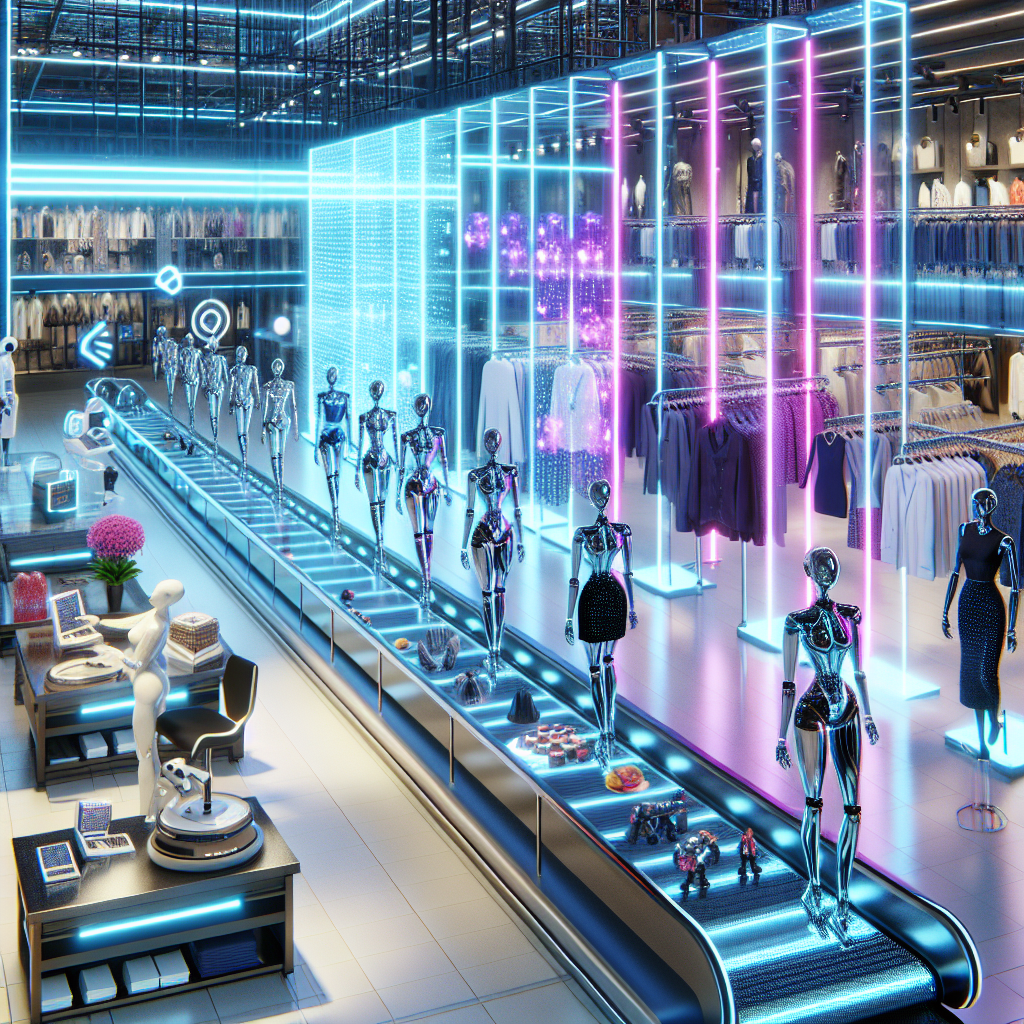AI and the Future of Fashion Retail: A Look Into the Future
Artificial Intelligence (AI) has rapidly transformed various industries, and the fashion retail sector is no exception. AI technologies are revolutionizing the way consumers shop for clothing and accessories, as well as how retailers market their products and manage their businesses. From personalized shopping experiences to efficient inventory management, AI is reshaping the future of fashion retail in numerous ways.
In this article, we will explore the impact of AI on the fashion retail industry, the benefits it offers to both consumers and retailers, and the future trends that we can expect to see in the coming years.
The Impact of AI on Fashion Retail
AI technologies, such as machine learning and natural language processing, have been widely adopted by fashion retailers to enhance the shopping experience for consumers. One of the most significant ways in which AI is transforming the industry is through personalized recommendations. By analyzing customer data, such as browsing history, purchase behavior, and social media interactions, AI algorithms can suggest products that are tailored to each individual’s preferences and style. This not only helps consumers discover new brands and styles but also increases the likelihood of making a purchase.
In addition to personalized recommendations, AI is also being used to improve the overall shopping experience. Virtual fitting rooms, for example, allow customers to try on clothing virtually using their smartphones or tablets. This not only saves time and effort but also reduces the need for physical changing rooms, making the shopping process more convenient and efficient.
AI is also playing a crucial role in inventory management and supply chain optimization. By analyzing sales data and predicting future demand, retailers can better forecast inventory levels, reduce overstock, and minimize out-of-stock situations. This not only helps retailers save costs but also ensures that customers have access to the products they want when they want them.
Furthermore, AI-powered chatbots and virtual assistants are being used to provide customer support and answer queries in real-time. This not only improves customer satisfaction but also reduces the workload on human customer service agents, allowing them to focus on more complex tasks.
Benefits of AI in Fashion Retail
The adoption of AI in fashion retail offers numerous benefits to both consumers and retailers. For consumers, AI technologies provide a more personalized and convenient shopping experience. By receiving tailored recommendations and being able to try on clothing virtually, customers can make more informed purchasing decisions and feel more confident in their choices. This, in turn, leads to increased customer satisfaction and loyalty.
For retailers, AI offers significant cost savings and efficiencies. By optimizing inventory levels and streamlining supply chain processes, retailers can reduce operational costs and improve profitability. AI-powered chatbots and virtual assistants also help retailers provide better customer service at a lower cost, leading to improved customer retention and brand loyalty.
Future Trends in AI and Fashion Retail
Looking ahead, we can expect to see even more advancements in AI technology in the fashion retail industry. One of the key trends that is likely to emerge is the use of AI for sustainability and ethical sourcing. By analyzing data on suppliers, materials, and production processes, retailers can ensure that their products are made in a sustainable and ethical manner. This not only appeals to environmentally conscious consumers but also helps retailers build a positive brand image.
Another trend that we can expect to see is the integration of AI with augmented reality (AR) technology. By combining AI-powered recommendations with AR virtual fitting rooms, retailers can offer customers a truly immersive and interactive shopping experience. This not only enhances the overall shopping experience but also increases engagement and conversion rates.
Additionally, we can expect to see more retailers adopting AI-powered visual search technology. This allows customers to search for products by uploading images or taking photos of items they like. By analyzing these images, AI algorithms can suggest similar products from the retailer’s inventory, making it easier for customers to find what they are looking for.
FAQs
Q: How is AI being used in fashion retail?
A: AI is being used in fashion retail for personalized recommendations, virtual fitting rooms, inventory management, supply chain optimization, customer support, and more.
Q: What are the benefits of AI in fashion retail?
A: The benefits of AI in fashion retail include personalized shopping experiences, cost savings, improved customer service, and increased customer satisfaction and loyalty.
Q: What are some future trends in AI and fashion retail?
A: Future trends in AI and fashion retail include sustainability and ethical sourcing, the integration of AI with AR technology, and the adoption of visual search technology.
In conclusion, AI is transforming the fashion retail industry in numerous ways, from personalized recommendations to virtual fitting rooms to inventory management. The adoption of AI offers significant benefits to both consumers and retailers, and we can expect to see even more advancements in the future. By leveraging AI technologies, fashion retailers can enhance the shopping experience, improve operational efficiencies, and stay ahead of the competition in an increasingly competitive market.

